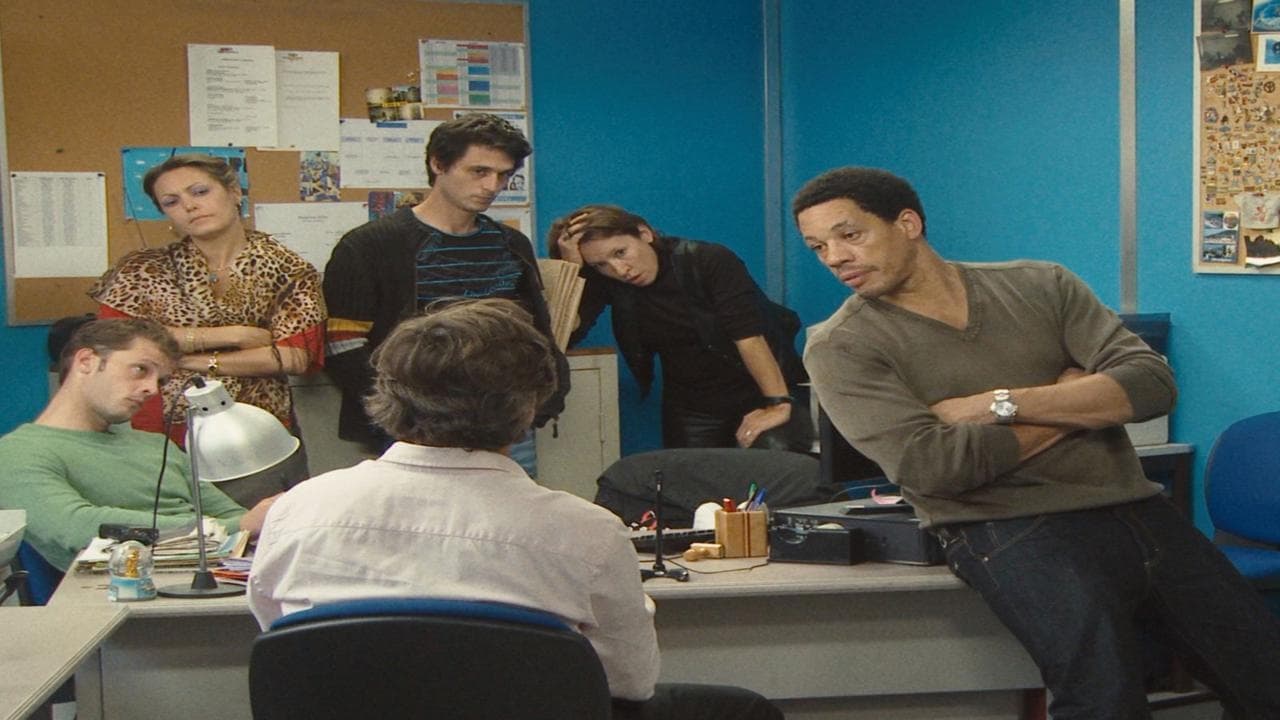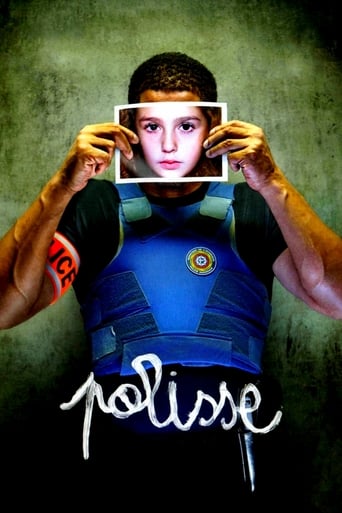

Leaving the series half-finished,I recently decided to re-start my viewing of the gritty HBO series The Wire.Looking round for info on The Wire,I found out about a French Noirish title which had been called "The Wire:The Movie." After the odd spelling of the title led to it being a bit tough to track down,I got set to join the polisse force.The plot:Joining the Child Protection Unit (CPU) to take photos of the daily routine of the CPU, photographer Melissa gets the chance to examine the various routes the officers take to begin building a case against the alleged child abusers (almost all of which are later sent to other departments in the police to expand upon,which leads to the CPU (largely) not knowing the verdict from each case.) Whilst Melissa gets close enough to a cop to start an affair,CPU officer Fred decides to push Melissa out of the loop.View on the film:Basing each case featured on ones that a real Child Protection Unit handled,the screenplay by co-writer/(along with fellow co-star Emmanuelle Bercot) actress/director "Maïwenn" (who gives a touchingly shy performance as Melissa) reflects the real open-ended experience of each department,with the writers brilliantly leaving each verdict hanging in the air,as the cases go from the CPU to the legal department. Treating child abuse in a sensitive manner,the writers reveal that they are not afraid to put the cops with gritty dialogue under a Noir,rather than heroic light. Knitting the cops as a close,gallows humour bunch,the writers paint the blue line in blistering shades of grey,where disagreements over the best course of action leads to Film Noir frustrations being vividly expressed,as Fred (played with an excellent gruffness by Joey Star) openly keeps Melissa separate from the force.Working as a photographer during her time with the real CPU, Maïwenn & cinematographer Pierre Aïm give the movie a Film Noir,documentary gristle. Keeping Stephen Warbeck's score to a low hum, Maïwenn digs into the daily grind with tapping keyboards and muttered words making the loudest noise,whilst coiled shots cut the tension in the interviews with a knife. Putting the cops up against a car chase and a child hostage taking, Maïwenn cuts any "Action" atmosphere from the set-pieces,via the tracking shots moving with a short,sharp,shock which unleashes the blunt take down by the cops across the screen,as Melissa joins the polisse.
... View MoreThis movie is not so much about children stories, nor about doing this specific police work. If it were about any of that, it would take more time and scenes to portray personalities of children abusers, the process of investigating, analyzing, preparing operations or doing treatment with victims.It does not offer us any of that depth. It offers a couple of flashing scenes, brief stories that are just being used as everyday background and (police work) methodology - to take effect on small group of people that are of (!)seemingly random personalities.In the movie you are being tossed right in the middle, with no character introduction. With time you will be provided with very subtle hints to reconstruct pieces (for example in some actions and some situations characters don't act according to their natural response) and that's the breaking point.The way I saw it, personal histories and stories of police officers and of children they treat are connected. Some character insight hints are given throughout the movie, but almost every scene of child molestation story basically has - two - main protagonists to look at.> Nora is of course connected to non-displayed daughter of a traditional Muslim father. Her reaction is so emotional it feels she shouts things she kept in for a long time> Fred, who is constantly angered and on the outburst is connected with a homeless boy whose mother had to give him up. The boy is just so full of anger and sad and terrified; and only Fred was able to truly calm him down; and only then Fred is really showing his vulnerability.> Nadine is connected to the girl who gave an extra push to get back her phone (it was a smart phone!) - in the whole scene she's in the background, laughing but a bit embarrassed and out of the center spot, laying low, not feeling or sharing the absurdity of the story (BTW, I just love the acting of the girl in that scene. You see in her eyes how she is slowly realizing, and how she is ashamed but also angry and deeply hurt by their laughter)> And Iris - the last story, the closure. It has been winking at us for the entire time - her cold nature, detached; her disliking and even hatred of men; her bulimia and body-acceptance problems; identifying herself with a creature dead, gone, unwanted, sick, rotten. That happened when she was the same age as is Solal, I would guess. The contrast of her and Solal could be seen in two ways - are they opposites of character (one succumbs, the other overcomes), or is her ending also his future ending, no matter what he may accomplish in life? (she did have a very successful career after all) Can he escape his "destiny"? This is yours to conclude.To conclude, all of this is not to represent or demonstrate police work or traumatic stories of real life. It's about past and present, about surviving, understanding, revealing the hidden. Outside of their jobs, would you make friends, hang out with these people? Or would you find Fred closed up and aggressive; Iris bitter cynic and passive aggressive; Nora a bitchy go-getter big-mouth. Outside in the real world these people are non-functioning; but when on their ground, which we all wouldn't even go near, they are heroes and experts.To end, I would say the movie is very very emotional and even if I'm wrong with all this and over the top, I see it that way and like it that way.
... View MoreI had no idea that this film had many nominations at last year's César awards (the french Oscars). I started to see it on cable and immediately got interested in the subject and the way they handle it. It's straight forward but subtle at the same time. It has a good moving pace, there's always something going on. The array of characters is very rich and even though there's no time to get more deeply into their private worlds, you get to understand that they are mere human beings doing their best at their job, which is trying to protect all "minors" from abusive situations. I specially liked the realism of the characters, you end up caring for most of them and wishing them well in their actions.
... View MoreThis French drama is set inside the Child Protection Unit of the Paris police. This is the unit that deals with crimes involving children and crimes against children, and some of the material here is supposedly based on actual cases. Actress, co-writer and director Maitwenn Le Besco has obviously thoroughly researched the background of the Unit, and she brings a documentary-like realism to the material through the use of hand held cameras, rapid cutting between scenes, overlapping story lines, and natural performances from an ensemble cast. There are some strong and unsettling moments interspersed throughout the film. Some of the characters are more fully developed than others, and this creates an uneven balance. A photojournalist (played by the director herself) is assigned to record the activities of the unit, and she becomes embedded and gets swept up in some of their activities. The members of the specialist unit seek catharsis for their stress through drink, casual sex, and inappropriate black humour. It is often demanding and draining work, as they often witness some of the worst deprivations in society, and the horrors that they deal with on a daily basis take their toll, both personally and professionally. With its mix of black humour, police procedural, tired melodrama and action, Polisse sometimes comes across like the pilot episode for a TV series about the CPU, sort of like a frenetic cross between The Wire and Law & order: SVU.
... View More